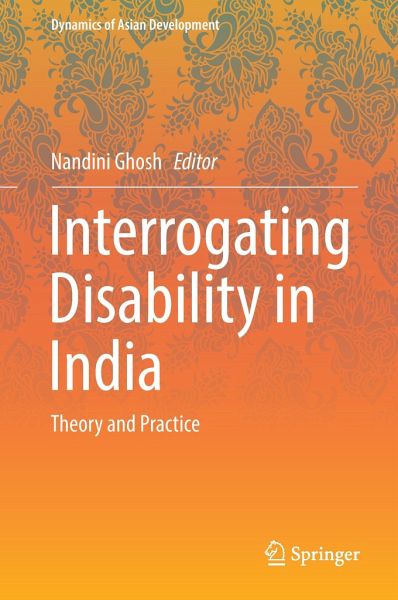
Interrogating Disability in India
Theory and Practice
Herausgegeben: Ghosh, Nandini

PAYBACK Punkte
34 °P sammeln!
This book discusses the multifaceted concept of disability in the context of India. Through analyses of theoretical propositions of disability in South Asia and empirical explorations of the lives of persons with disabilities in India, this book not only brings to the forefront a hitherto unexplored realm in academic discourse, but also bridges the gap between theory and lived reality, and between policy and practice. Thus, it is an important addition to the field of development studies in South Asia. The papers herein represent multidisciplinary and interdisciplinary perspectives from archite...
This book discusses the multifaceted concept of disability in the context of India. Through analyses of theoretical propositions of disability in South Asia and empirical explorations of the lives of persons with disabilities in India, this book not only brings to the forefront a hitherto unexplored realm in academic discourse, but also bridges the gap between theory and lived reality, and between policy and practice. Thus, it is an important addition to the field of development studies in South Asia. The papers herein represent multidisciplinary and interdisciplinary perspectives from architects, lawyers, sociologists, political scientists, historians, economists and linguists to social work practitioners from the grassroots level. This range of insights from different disciplines allows for the exploration of a wide range of issues around disability and the lives of disabled people, moving from theoretical assumptions to exploring structural and infrastructural barriers, to problematizing different aspects of the lives of disabled people, and from objective realms to more subjective domains. Along with students and researchers of disability studies, this book is of interest to a diverse readership encompassing the social sciences, mental health, and development studies.












